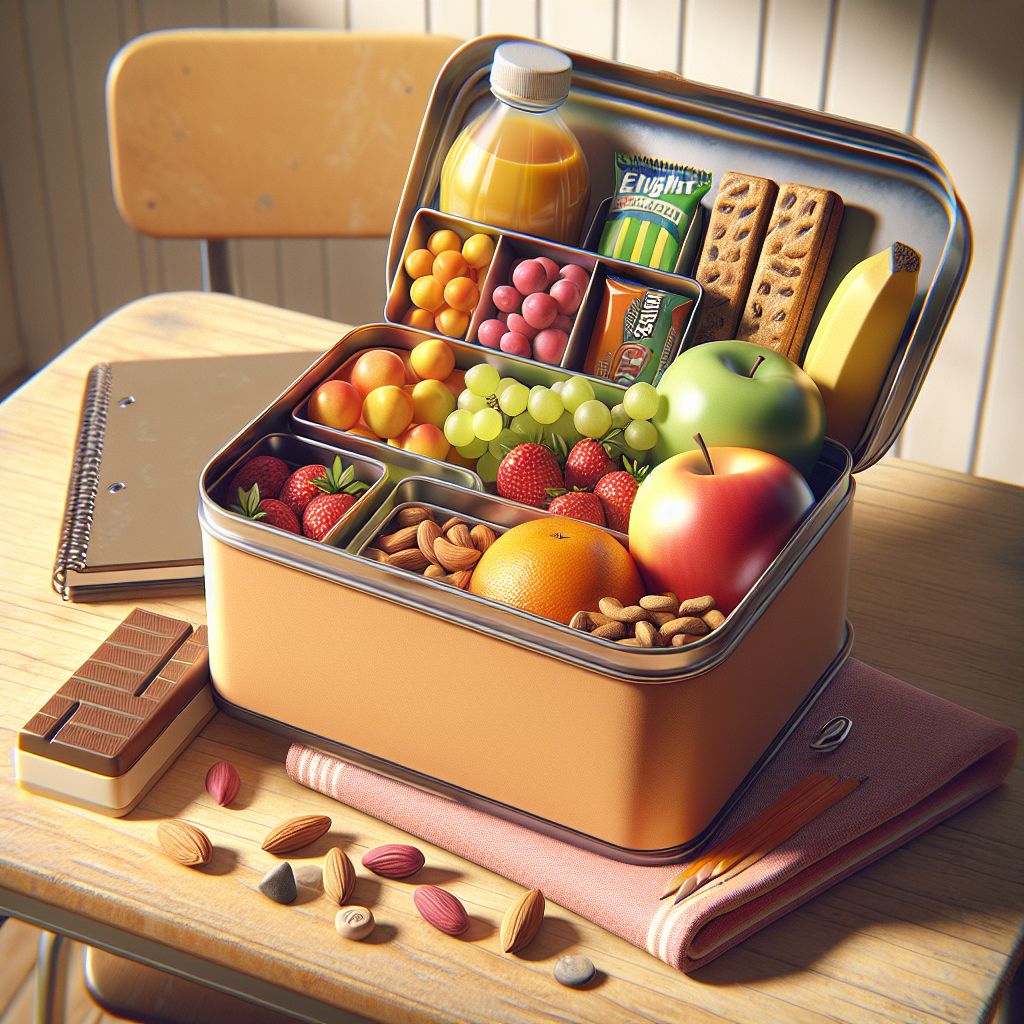Snack Attack: The Surprising Secret to School Success in 2025!
Dietitians unveil innovative, kid-friendly snacks that boost energy and focus, making healthy eating both fun and effective for back-to-school routines.

Nutritional Focus for the New School Year
As the 2025 school year begins, parents and educators are putting a premium on healthy snacks that can effectively fuel young minds. Registered dietitians highlight the necessity of balancing macronutrients—proteins, fats, and carbohydrates—to ensure children have the energy they need for long school days. Recent guidance suggests opting for snacks that are easy to pack and free from excessive sugars, steering clear of processed foods that often result in energy crashes. With a focus on whole foods, it’s easy to see how thoughtful snack choices can make a big difference in kids' school performance.
Expert Picks for Balanced Nutrition
Dietitians are increasingly recommending delicious snacks that children will actually want to eat, like apple slices with almond butter, which offer both crunch and sweetness. These combinations pack in essential vitamins along with healthy fats, crucial for brain development. In particular, omega-3 rich nuts have been shown to enhance focus and reduce behavioral issues in school, making them a smart choice. Variety is key, as experts also advise including yogurt-based snacks, such as Greek yogurt topped with berries, to keep kids engaged and nourished.
Innovative Twists on Classics
Modern snacking has seen a refreshing makeover, with dietitian-approved options that are both convenient and nutritious. For instance, air-popped popcorn seasoned with herbs offers a low-calorie alternative to traditional chips. Parents are also turning to creative swaps like pairing raw cheese with apple slices, promoting stability in blood sugar levels. Additionally, engaging snack ideas such as fruit kebabs or veggie wraps encourage kids to eat healthier while keeping mealtime fun, aligning well with USDA guidelines promoting more fruits and vegetables.
Addressing Underweight Concerns and High-Calorie Needs
For children struggling with weight issues, nutritious and calorie-dense options are essential. Dietitians recommend snacks like avocado toast or nut butter-stuffed dates to meet dietary needs without compromising health. Focused on addressing growth challenges, these suggestions are becoming key elements in pediatric wellness plans. After-school snacks like protein-packed smoothies are also gaining traction, emphasizing the importance of both nutrition and hydration to support learning and concentration.
Emerging Trends and Parental Strategies
The trend toward minimally processed snacks is stronger than ever, with selections like Siggi's Icelandic Yogurt recognized for their health benefits. Parents are participating in grassroots movements encouraging real food snacking, often sharing success stories on social media. Busy families can benefit from practical advice like creating snack boxes filled with cheese, grapes, and whole-grain crackers. By aligning with school policies and nutritional guidelines, parents can ensure their children receive balanced meals throughout the day.
Sustainable and Fun Implementation
Sustainability is becoming an integral part of how families approach snacking. Homemade energy balls, made from wholesome ingredients like oats and dark chocolate chips, are gaining popularity for their eco-friendly appeal. These snacks not only satisfy hunger but also contribute to a responsible lifestyle. Nutrition experts encourage the use of fruits and veggies to create colorful, fun snack options that excite children about eating healthy. By adopting these practices, families can nourish their kids while promoting environmental stewardship.
Conclusion: The Path to Academic Success
In conclusion, the expert advice for nutritious snacking in 2025 underscores its critical role in children’s academic achievement. By combining fun with health-conscious choices, parents can play an active role in shaping their child's eating habits. As schools prioritize wellness, these snack strategies not only support learning but also foster lifetime habits. With these recommendations, children can thrive in a landscape increasingly focused on health and well-being.